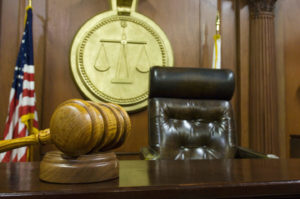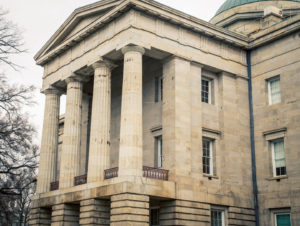Christian school sues Maine for ‘poison pill’ attempt to dodge school choice ruling
Despite losing its case in the U.S. Supreme Court, Maine is still attempting to discriminate against Christian schools, a lawsuit claims.
Two years after the high court condemned religious…

Despite losing its case in the U.S. Supreme Court, Maine is still attempting to discriminate against Christian schools, a lawsuit claims.
Two years after the high court condemned religious discrimination in school choice programs, Maine is being accused of hiding a “poison pill” in its updated regulations.
An appeal filed Tuesday against Education Commissioner Pender Makin argues the “‘poison pill’ is designed to deter religious schools from participating and thus perpetuates the religious discrimination at the heart of the state’s prior sectarian exclusion.”
The plaintiff in the case is Crosspoint Church, a non-denominational church that runs Bangor Christian School (BCS).
Prior to the 1980s, Maine’s town tuitioning program – a form of school choice – was available to all schools, including religious schools. Town tuitioning was established in 1873 to give students state funds to attend a private school if their public school district didn’t have a secondary school.
However, the government eventually added a requirement for the private schools to be “nonsectarian.”
In the 2022 case of Carson v. Makin, the U.S. Supreme Court ruled the “nonsectarian” requirement amounted to religious discrimination and thus violated the First Amendment.
Two of the three plaintiffs in Carson v. Makin attended BCS.
State Attorney General Aaron Frey openly bemoaned the Supreme Court’s decision, saying Christian schools’ beliefs were “fundamentally at odds with the values we hold dear.”
“They promote a single religion to the exclusion of all others, refuse to admit gay and transgender children, and openly discriminate in hiring teachers and staff,” Frey wrote in a press release. “One school teaches children that the husband is to be the leader of the household.
“I intend to explore with Governor Mills’ administration and members of the Legislature statutory amendments to address the Court’s decision and ensure that public money is not used to promote discrimination, intolerance, and bigotry.”
Now, Crosspoint Church claims Maine is still trying to undermine its religious liberties.
“The legislature crafted the poison pill explicitly to circumvent the Supreme Court’s decision in Carson,” the appeal reads. “[It] also specifically targeted Crosspoint.
“The poison pill would prohibit BCS from teaching its religious perspective, requiring parents and students to agree with BCS’s religious beliefs and religious educational mission, and requiring students to adhere to a code of conduct consistent with BCS’s religious beliefs.”
If the appeal is successful, it will further cement the validity of school choice – specifically, religious school choice – in legal precedent.
“Families should be free to choose the educational option that works best for them without the State’s unconstitutional interference,” said Camille Varone, associate counsel for First Liberty Institute, which represents BCS.
“Maine excluded religious schools from its school choice program for over 40 years, but the U.S. Supreme Court made it clear that such religious discrimination must end.”



